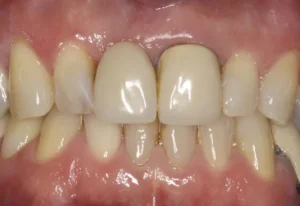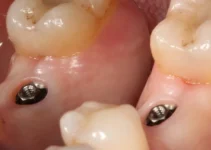Economical dentures offer a budget-friendly solution for individuals seeking to replace missing teeth without breaking the bank. These dentures are designed to be cost-effective while still providing the essential functionality and aesthetic appearance that patients need. Despite their lower price, economical dentures can be made from quality materials and customized to fit comfortably and look natural. This article explores various options available in the market, highlighting their benefits and how they can restore both the functionality and aesthetics of your smile.
What are Economical Dentures?
Economical dentures represent a cost-effective solution for those who have lost one or more teeth. They are designed to provide the basic functionality and aesthetics of natural teeth without the high expense associated with more advanced prosthetic options. By understanding the definition, materials used, and the pros and cons of economical dentures, patients can make informed decisions about their dental health.
These dentures are essential in restoring the ability to chew and speak properly while also preserving the structure of the mouth. They are typically sought after by individuals who need a quick and affordable replacement for missing teeth. Despite being economical, these dentures can still offer significant benefits, though they may have some limitations compared to their more expensive counterparts.
Definition and Overview
Economical dentures are dental devices designed to replace missing teeth at a lower cost than custom or premium dentures. They are generally produced using more cost-effective materials and simpler manufacturing processes. This makes them accessible to a broader audience, especially those who may not have dental insurance or the means to afford higher-end dental prosthetics.
Typically, economical dentures come in two types: complete and partial. Complete dentures replace an entire set of teeth, while partial dentures are used when some natural teeth remain. Both types serve the same fundamental purpose, which is to restore oral functionality and improve the wearer’s appearance.
Materials Used in Economical Dentures
Economical dentures are primarily made from acrylic resin and composite resins. These materials are chosen for their cost-effectiveness, ease of fabrication, and adequate performance in terms of durability and appearance. Acrylic resin, for instance, is a lightweight and versatile material that can be easily adjusted or repaired. Composite resins, on the other hand, offer a slightly more natural appearance but may come at a slightly higher cost.
Another material sometimes used in economical dentures is metal alloys for the framework in partial dentures. These alloys provide additional strength and durability, though they might add a slight increase to the overall cost.
Advantages and Disadvantages
One of the main advantages of economical dentures is their affordability. They provide a viable option for individuals who need to replace missing teeth but are on a tight budget. Additionally, they can be produced relatively quickly, allowing patients to regain oral functionality in a shorter period of time.
Another advantage is their adjustability. Because they are made from materials like acrylic resin, economical dentures can be easily modified to improve their fit and comfort over time. This ensures that the dentures remain functional and comfortable for the wearer as their mouth changes. Disadvantages, however, include reduced durability and aesthetics compared to more expensive options. Economical dentures may wear down more quickly and may not look as natural, impacting both the lifespan of the dentures and the confidence of the wearer.
In conclusion, economical dentures offer a balance between cost and functionality. While they may not provide the same level of durability or aesthetic appeal as premium dentures, they still play a crucial role in restoring oral health and quality of life for many individuals. If you are interested in learning more about other dental solutions, we encourage you to explore our other articles.
Types of Economical Dentures
Choosing the right type of denture depends on various factors, including the extent of tooth loss, the condition of the jawbone, and the patient’s budget. While premium options might offer enhanced aesthetics and durability, there are several economical dentures that provide excellent functionality and appearance. Here, we discuss the three primary types of economical dentures: partial dentures, complete dentures, and implant-supported dentures.
Economic dentures have advanced significantly with improvements in materials and techniques, making them a viable solution for many. These options allow individuals to restore their smile and improve their overall oral health without a significant financial burden.
Partial Dentures
Partial dentures are an effective solution for individuals who have lost some of their teeth but still retain several natural teeth. These dentures are custom-made to fit the gaps between existing teeth, enhancing the wearer’s ability to chew and speak properly. They are designed to be removable, making cleaning and maintenance straightforward.
Modern partial dentures typically consist of a metal framework with clasps that attach to the natural teeth. These metal clasps provide stability while ensuring the dentures remain discreet. They can be fabricated using various materials such as acrylic, which is less expensive, or titanium for more durability.
Partial dentures are usually less invasive and less expensive compared to other dental prosthetics. They help prevent the remaining natural teeth from shifting and can significantly improve the wearer’s quality of life.
Complete Dentures
Complete dentures, also known as full dentures, are used when all the teeth in one or both arches (upper and lower) need to be replaced. These dentures rest directly on the gums and are custom-designed for each patient to ensure a comfortable fit.
These dentures are typically made from acrylic resin, which is not only cost-effective but also provides a natural look. The process involves taking an impression of the oral cavity and crafting dentures that match the contour of the patient’s gums and jawline.
While complete dentures are more affordable than dental implants, they require proper care and maintenance. They should be removed nightly for cleaning and to allow the gums to rest. Additionally, patients may need periodic adjustments to ensure the dentures continue to fit well as the gums and jawbone can change over time.
Implant-Supported Dentures
Implant-supported dentures offer a more secure and stable alternative to traditional dentures by using dental implants as anchors. These implants are surgically placed into the jawbone, providing a foundation upon which the dentures can be attached. This method significantly reduces the risk of dentures slipping or moving while eating or speaking.
Although the initial cost of implant-supported dentures can be higher than other options, they offer long-term benefits and durability. They are particularly advantageous for patients with significant jawbone loss, as the implants help to preserve and stimulate bone growth.
There are two primary types of implant-supported dentures: bar-retained and ball-retained. In bar-retained dentures, a thin metal bar follows the curve of the jaw and is attached to the implants. The denture then clips onto this bar. In ball-retained dentures, each implant holds a metal ball that fits into sockets on the denture, offering secure attachment.
While implant-supported dentures are a more permanent solution and involve a more complex procedure, the enhanced stability and comfort they provide make them a popular choice for many individuals seeking an economical yet durable denture solution.
By exploring these options, patients can find an economical denture solution that best fits their needs and lifestyle. To learn more about denture options and other oral health topics, be sure to explore our other articles.
Cost Considerations for Economical Dentures
Understanding the cost considerations for economical dentures is crucial for anyone looking to restore their smile. Dentures offer a functional and aesthetic solution to tooth loss, but the expenses involved can vary widely. By breaking down the various factors that influence cost, exploring insurance and payment options, and comparing dentures to other tooth replacement methods, you can make a more informed decision.
Let’s delve into the specific elements that affect the overall price of dentures and how you can navigate through various financial options to find a solution that works best for you.
Factors Influencing Costs
The cost of dentures can be influenced by a multitude of factors. Material quality is one of the primary determinants. Dentures made from high-grade materials generally offer better longevity and a more natural appearance, but they also come at a higher price. Another factor is the complexity of the case; more intricate dental issues may require custom solutions, which can drive up costs.
Additionally, geographical location plays a significant role in determining the price. Urban areas and regions with a higher cost of living often have higher dental service fees. Moreover, the expertise of the dental professional also affects the price. Highly trained and experienced dentists tend to charge more for their services.
Other considerations include the type of dentures (full or partial) and any additional treatments needed, such as extractions or bone grafting. Understanding these factors can help you anticipate costs more accurately and plan accordingly.
Insurance and Payment Options
Navigating the world of insurance and payment options can be daunting, but understanding what’s available can make dentures more affordable. Many dental insurance plans offer partial coverage for dentures. However, it’s essential to review your policy carefully to understand the scope of coverage, including any limitations and exclusions.
- Some plans may cover the full cost of basic dentures but charge extra for premium materials or additional treatments.
- Look for coverage details about initial consultations, fittings, and follow-up appointments.
Flexible payment plans and financing options can also make the cost of dentures more manageable. Many dental offices offer in-house financing or partner with third-party financing companies that provide low- or no-interest plans. This allows you to spread the cost over several months or even years, making it easier on your budget.
For those without insurance, discount dental plans offer a viable alternative. These plans usually require an annual fee but provide significant discounts on various dental services, including dentures.
Cost Comparison with Other Tooth Replacement Options
When considering dentures, it’s also useful to compare their costs with other tooth replacement options such as dental implants and bridges. While implants are often touted as the gold standard for tooth replacement due to their permanence and natural feel, they come with a higher upfront cost. Implants typically require surgical procedures, bone grafting, and multiple dental visits, all of which contribute to their expense.
Bridges offer another alternative, generally falling between dentures and implants in terms of cost. They can be a good option for patients missing one or a few teeth and looking for a less invasive solution compared to implants. However, bridges may require the adjacent teeth to be altered, which can add to the overall cost and impact the health of your other teeth.
- Dentures: Generally the most economical option, available in a range of materials and designs.
- Bridges: Mid-range cost, requires alteration of adjacent teeth.
- Implants: Highest initial cost, but can last a lifetime with proper care.
Ultimately, the best choice depends on your specific needs, budget, and long-term dental health goals. By understanding the cost differences and benefits of each option, you can make a more informed decision. If you found this article helpful, be sure to read our other articles that delve into the intricacies of dental health and explore other tooth replacement options in more detail.
Caring for Your Economical Dentures
Ensuring the longevity and functionality of your dentures does not have to be a costly affair. In fact, with the right care, economical dentures can last just as long as their more expensive counterparts. Proper maintenance involves a combination of daily cleaning, correct handling, and knowing when to seek professional advice. In this guide, we will cover all these aspects to help you make the most out of your dentures.
By following these practical tips, you can keep your dentures looking their best and functioning properly. Investing a little time every day for their upkeep can save you a significant amount of money and discomfort in the long run. Let’s delve into some specific practices that can help you maintain your economical dentures effectively.
Daily Cleaning and Maintenance
Regular cleaning of dentures is essential to eliminate bacteria and food particles. Accumulation of debris can lead to bad breath, infections, and even damage to the dentures themselves. It is recommended to clean your dentures after every meal using a brush specially designed for this purpose. Make sure to use a non-abrasive denture cleanser to avoid damaging the surface.
Ideally, you should also soak your dentures overnight in a denture cleaning solution. This helps in removing stubborn stains and deposits that can’t be brushed away. Remember to rinse them thoroughly with water before putting them back to avoid any residual cleaning solution, which can cause irritation.
While cleaning, inspect your dentures for any cracks, chips, or other signs of wear. Addressing such issues early can prevent more serious damage and the need for costly repairs. Routine cleaning not only ensures hygiene but also prolongs the life of your dentures.
Handling and Storage Tips
Proper handling is crucial to avoid damaging your dentures. Always handle them over a sink filled with water or a soft towel. This acts as a cushion in case you accidentally drop them. Although dentures are designed to be durable, they can still break if they hit a hard surface. When not in use, dentures should be stored in a denture-soaking solution or plain water to keep them from drying out and losing their shape. Avoid using hot water as it can warp the dentures’ material. Additionally, never wrap them in a tissue or napkin as they can easily be mistaken for trash and thrown away accidentally.
Make sure to place your dentures in a secure and safe location, out of the reach of children and pets. Proper storage ensures that they remain in good condition and reduces the risk of accidental damage.
When to Seek Professional Help
Despite the best care, there might be instances when your dentures need professional attention. If you notice any persistent discomfort, sores in your mouth, or difficulty in chewing, it is essential to consult your dentist. These could be signs that your dentures need adjustment or relining.
Regular dental check-ups are crucial even for denture wearers. Your dentist can clean your dentures more thoroughly than home methods and check for any underlying issues. This is particularly important as poorly fitting dentures can lead to other complications such as gum irritation and bone loss.
If your dentures sustain significant damage such as severe cracks or breaks, avoid DIY fixes. Quick fixes or over-the-counter repair kits might provide a temporary solution but could lead to bigger problems in the long run. Always seek professional repair services to ensure the integrity and functionality of your dentures.
By following these guidelines on daily cleaning, proper handling, and knowing when to seek professional help, you can ensure the longevity and effectiveness of your economical dentures. For more tips and information on oral health, don’t forget to check out our other articles!
Common Questions About Economical Dentures
If you are considering economical dentures as a solution for tooth replacement, you probably have a few questions about their benefits, functionality, and durability. Below is a common question answered to help you make an informed decision.
How do economical dentures differ from more expensive options?
Economical dentures are typically made from less expensive materials which can affect their appearance and durability compared to premium options. They often have a simpler design and may not offer the same level of customization in terms of fit and aesthetics. However, they still provide functional benefits and are a viable option for individuals on a tight budget looking for effective tooth replacement solutions.

My name is Salman Kapa, a 73-year-old expert in bone regeneration and dental implantology. With decades of experience in the field, I am dedicated to advancing our understanding of oral health and hygiene. Through my research and writing, I aim to contribute to the development of innovative solutions in dental care.




